Ever been captivated by the stunning coat of an Australian Shepherd? Their beautiful fur comes in a variety of colors and patterns, making each Aussie truly unique. If you’re curious about the different types of Australian Shepherd coat patterns and markings, you’ve come to the right place.
In this blog, we’ll delve into the diverse world of Aussie fur, exploring the different colors, patterns, and markings that make these dogs so special. So, whether you’re a lifelong Aussie lover or just starting to learn about this amazing breed, get ready to be amazed by the different types of Australian Shepherd coat colors.
Brief History Of Australian Shepherds
The Australian Shepherd is not originally from Australia. Despite the name, these energetic dogs originated in the Wild West of the United States in the 1800s. Ranchers needed tough and intelligent herding companions to manage their growing flocks of sheep, and the Aussie emerged as a unique blend of various breeds.
Some of these contributing breeds arrived with European immigrants alongside their sheep, while others came with Basque shepherds, hailing from the mountainous border region between France and Spain. The name “Australian Shepherd” likely stems from the fact that some of these ancestral dogs might have been used in Australia before making their way to America.
Over time, dedicated breeders focused on creating the ultimate working ranch dog, selectively breeding for the most desirable traits like intelligence, hard work, and athleticism. This focused breeding program eventually led to the birth of the iconic Australian Shepherd we know and love today.
Here Are Some Types Of Australian Shepherd Based On Their Coat Colors:
1. Black and White Australian Shepherd
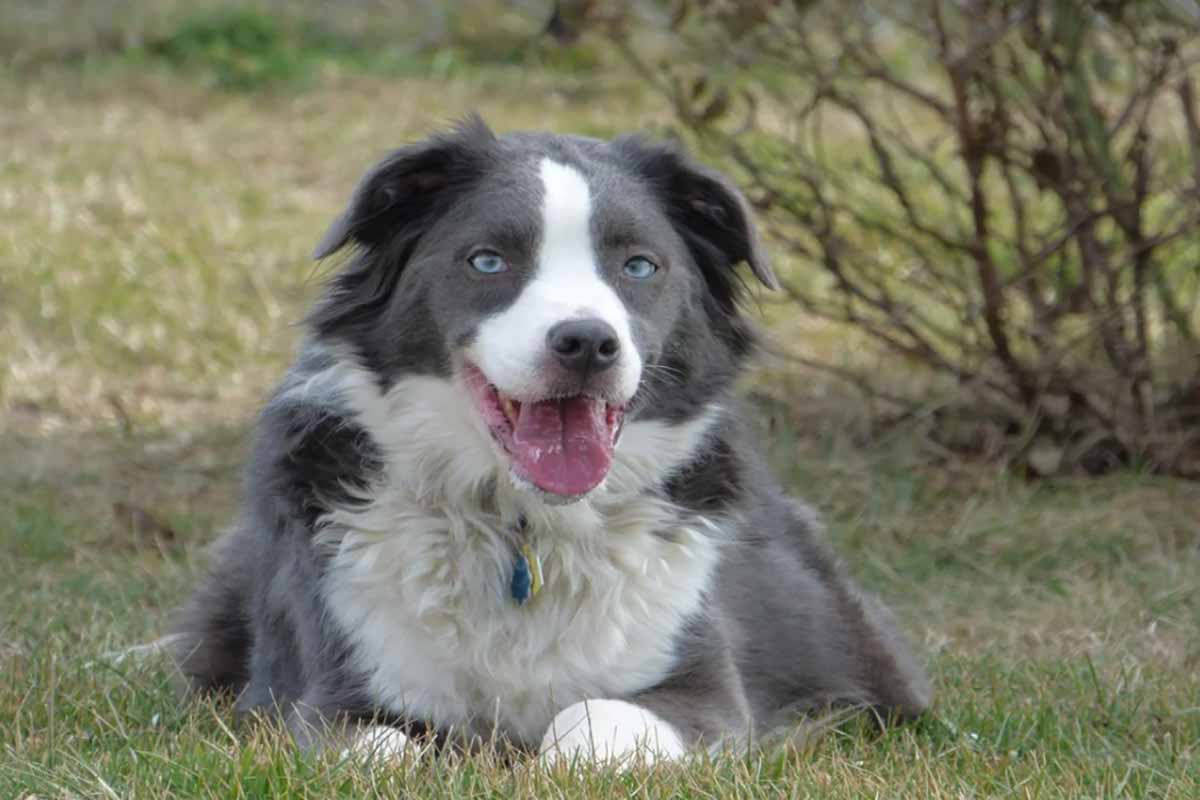
Black and White Australian Shepherds, also called black and white Aussies. Their fur is a cool combination of black and white patches. These patches can vary in size and distribution, making each Aussie one-of-a-kind.
Even though black and white australian shepherds look different from the more common brown and white Aussies, black and white Aussies are just as purebred. The reason for their distinct coat comes down to genetics, just like how eye and hair color vary in humans.
2. Black and Tan Australian Shepherd
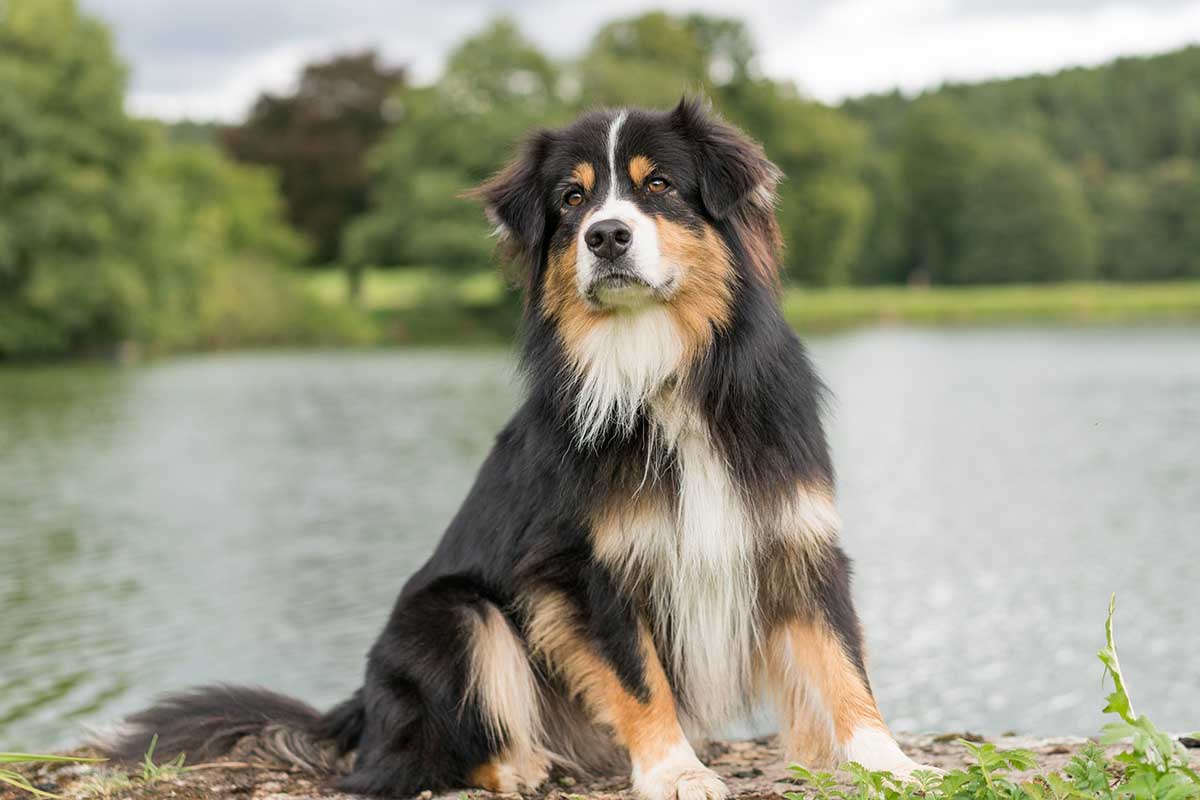
A Black and Tan Australian Shepherd is a striking Aussie with a two-toned coat. Imagine a black dog with neat tan markings sprinkled around. These tan patches, called “points”, can show up on their eyebrows, cheeks, legs, chest, and tail. The tan color can vary from a light brown to a rich copper, making each pup unique.
This isn’t the most common Aussie coloring, but it’s definitely an eye-catcher. Unlike some other Aussie colors, black and tan doesn’t have a special historical origin. It simply comes down to the genes a particular pup inherits.
3. Full Black Australian Shepherd
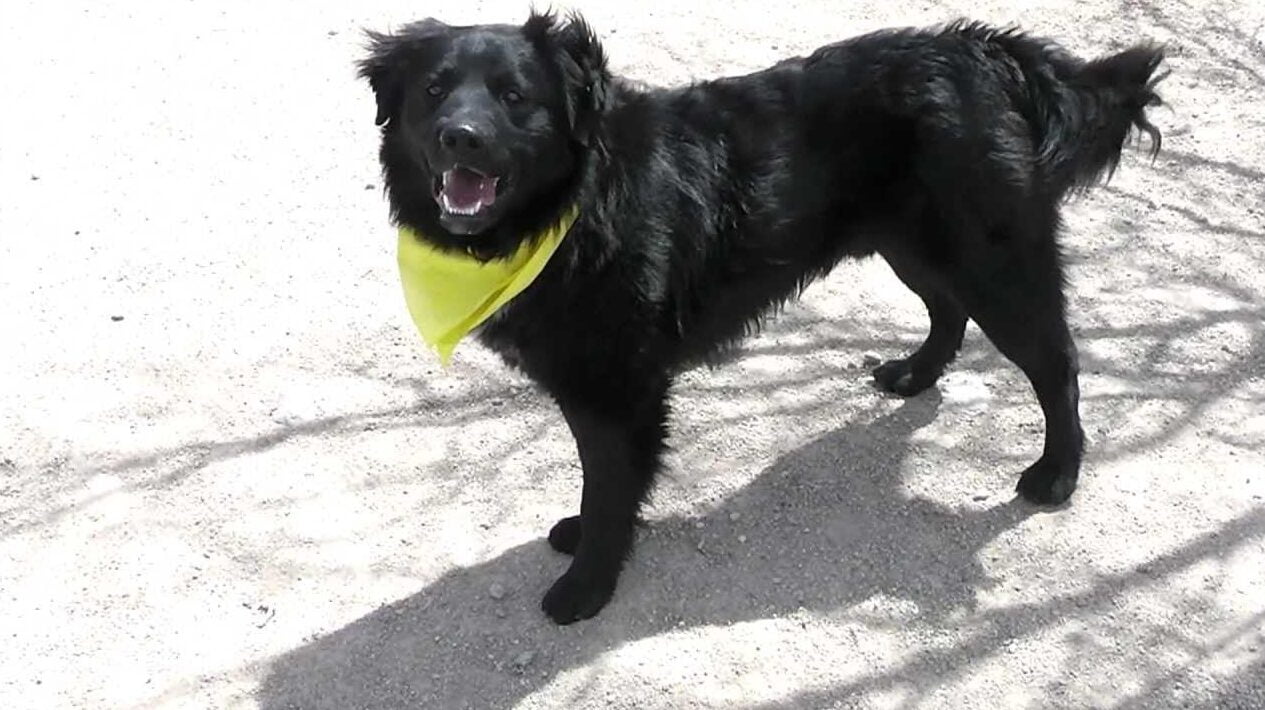
A Full Black Australian Shepherd is one of the rarest types of Australian Shepherd coat color. Imagine a sleek, black beauty with fur as dark as night! Unlike most Aussies that have multiple colors, a full black Aussie has very little to no white markings, maybe just a touch on their paws or chest.
This coloring isn’t something special from history, it just happens by chance when an Aussie inherits specific genes. While not the most common, these black beauties are just as playful and energetic as any other Aussie.
4. Black Tri-Colored Australian Shepherd
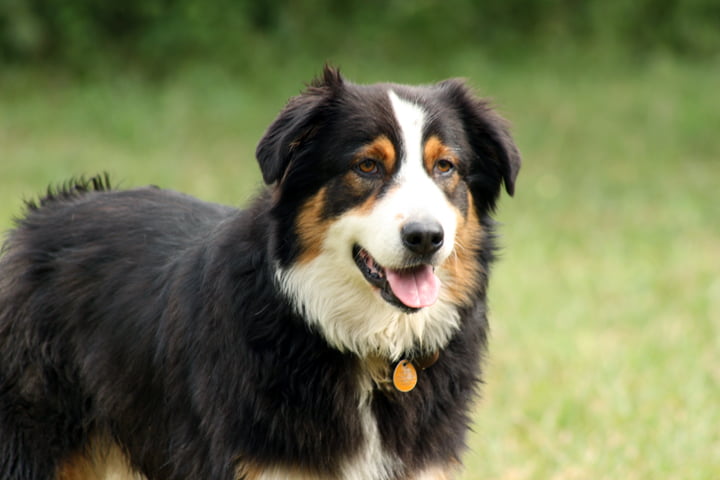
The Black Tri-Colored Australian Shepherd, also called a black tri Aussie, is the most popular Aussie coat. Picture a black and white dog with clever bursts of tan. These tan markings, called “points,” appear above their eyes, on their legs, chest, and under their tail.
The black, white, and tan create a stunning three-color combination. This coloring isn’t recent, it’s been around since the beginning of Australian Shepherds. Breeders loved the striking look, and over time, it became the most popular Aussie pattern.
5. Full Red Australian Shepherd
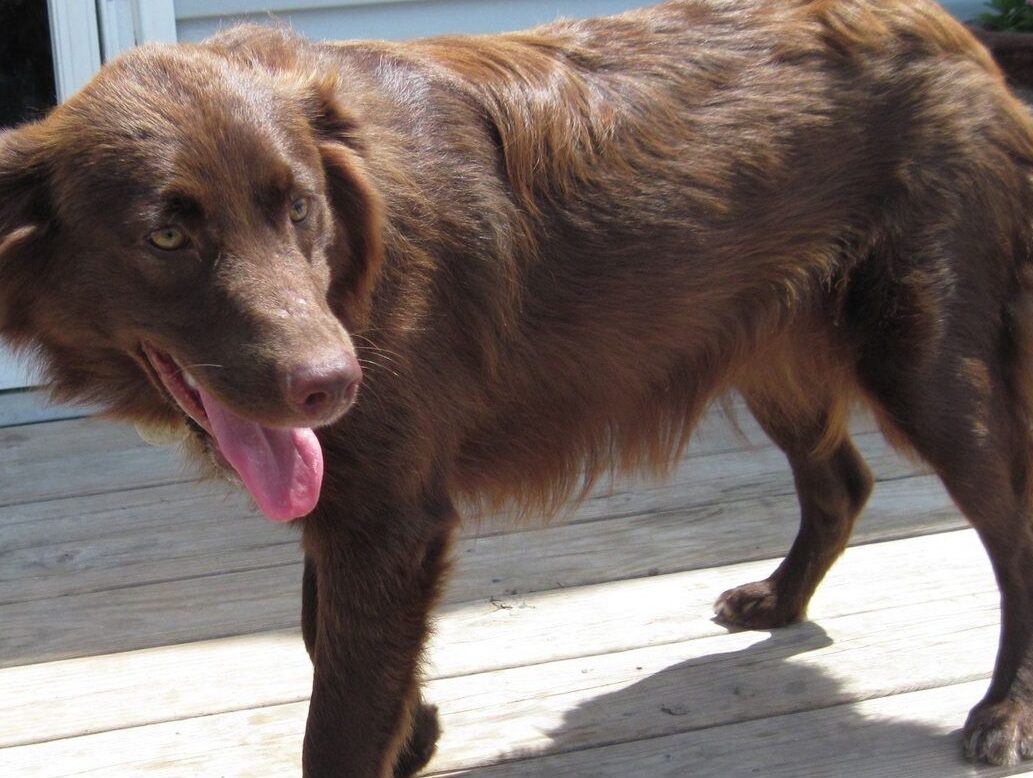
A Full Red Australian Shepherd is a head-turning Aussie with a fiery red coat. Unlike most Aussies with black, white, or merle patterns, a full red Aussie has fur in various shades of red, from a light strawberry blonde to a deep, rich auburn. They might even have a tiny white patch on their chest or paws.
This stunning red fur is pretty rare because it takes some special genes for an Aussie pup to inherit it. Full red Aussies aren’t any different from other Aussies though – they’re just as intelligent, energetic, and loyal.
6. Red Bicolor Australian Shepherd
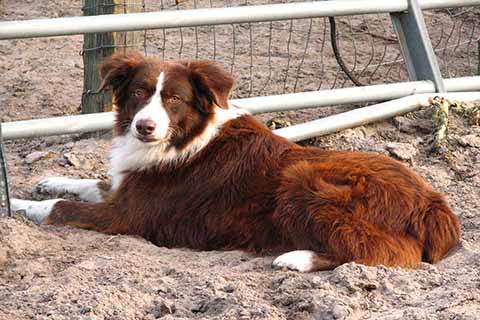
Red Bicolor Australian Shepherds are another eye-catching variation of the Aussie. Imagine a handsome dog with a two-toned coat, but instead of black and white, it’s red and white. Their fur is a combination of rich red, like a fire truck, and clean white markings on their face, chest, legs, and tail.
The amount of white can vary, but unlike black and tan Aussies, they won’t have any other colors like copper or brown. This red and white look isn’t the most common, but it’s definitely not super rare either. It all depends on the genes a particular Aussie inherits.
7. Red Tri-Colored Australian Shepherd

Imagine a dog with a stunning coat that combines three beautiful colors: red, white, and copper. That’s a Red Tri-Colored Australian Shepherd! This special fur pattern makes them stand out from other Aussies.
The red color on their body can range from a light copper to a deep, rich mahogany, and it’s nicely accented by white markings on their chest, legs, and sometimes even their face.
To complete the picture, they might have copper-colored “points” around their eyes and eyebrows. And just like other Aussies, their eyes can be blue, amber, or even green, adding to their unique charm.
8. Red Merle Australian Shepherd
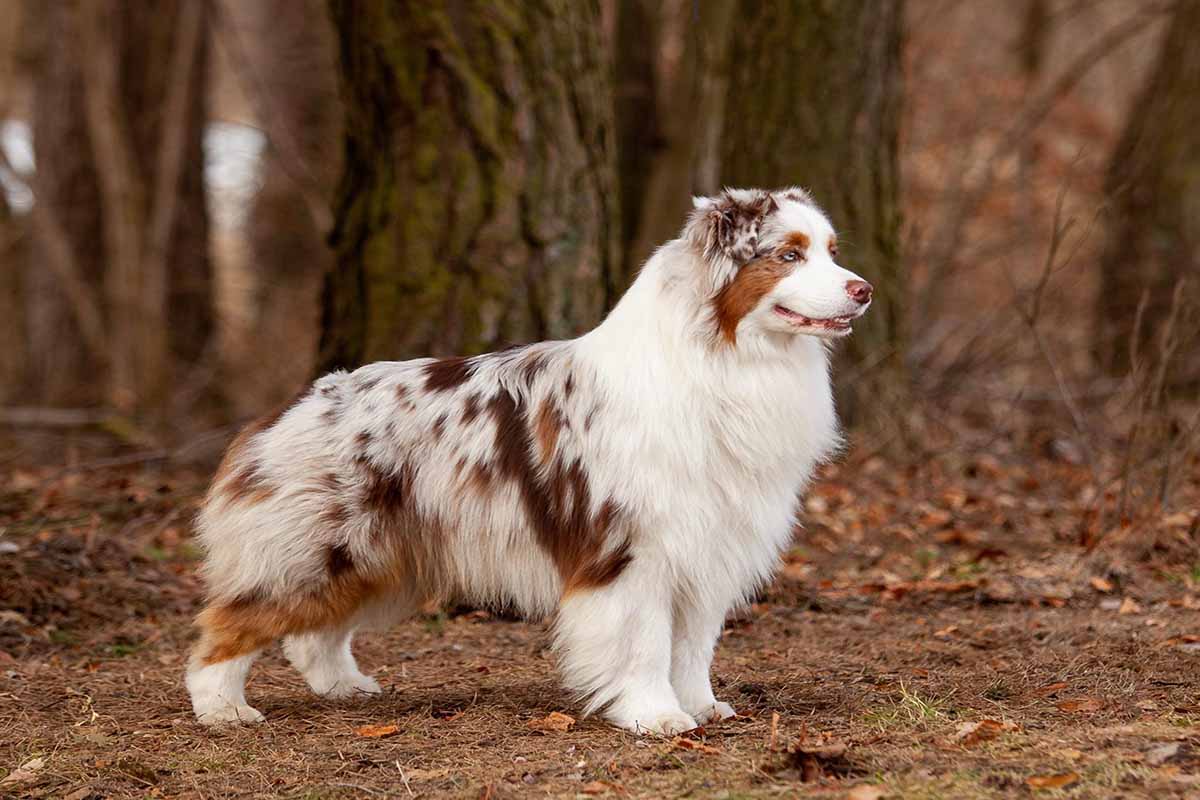
Red merle Australian Shepherds have a unique and beautiful fur pattern. Imagine a red dog with patches of lighter and darker red marbled throughout its fur, like the colors of sandstone.
This pattern comes from a special gene that “marbles” the dog’s red fur, similar to how tie-dye works on a shirt. These dogs can also have a special type of eye color called “marbled” where they have flecks of different colors in their irises, making their eyes look extra bright and interesting.
The most common eye colors are blue with brown flecks, brown with blue flecks, or even one of each! So, if you see a red merle Aussie with mismatched eyes, that’s just another part of their unique charm!
9. Red Merle Bicolor Australian Shepherd
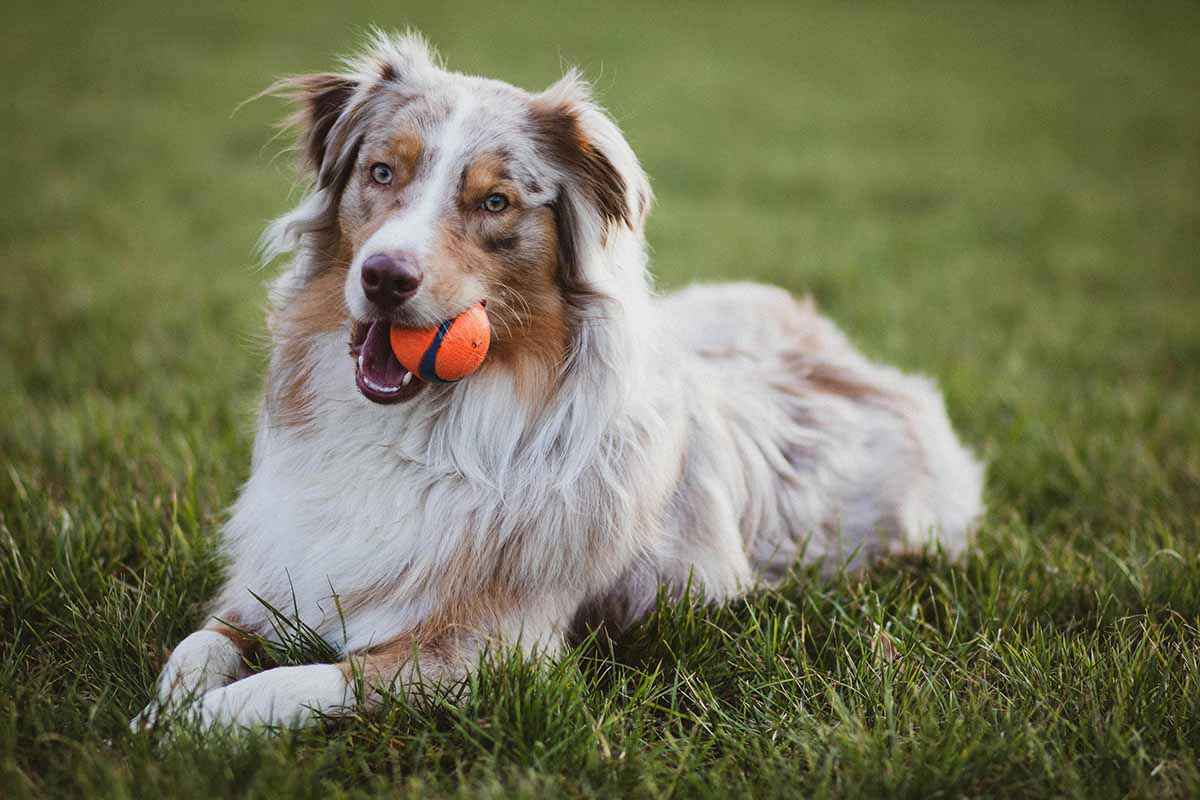
Red merle bicolor Australian Shepherds have a stunning coat that combines red fur with patches of lighter and darker red, like a red and white tie-dye pattern. They can also have white markings on their face, neck, or legs, sometimes even mixed in with the red on their face like freckles!
Their unique look is complete with marbled eyes, which means their brown or blue eyes have flecks of the other color, making them look extra special. Most don’t have tan markings, but if they do, they’re so subtle they don’t count as a separate color.
10. Red Merle Tricolor Aussie Shepherd Australian Shepherd
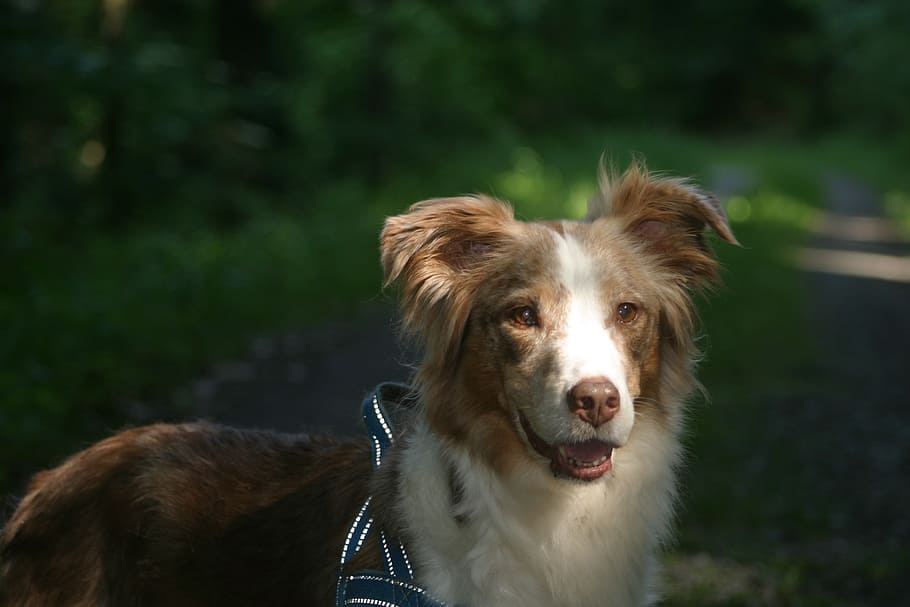
Red Merle Tricolor Australian Shepherds are like the ultimate, tri-colored version of the Red Merle Bicolor. Imagine a red dog with patches of lighter and darker red, just like the Bicolor. But now, add splashes of black or gray fur mixed in for a truly unique look. This comes from an extra gene that adds black or gray on top of the red merle pattern.
Just like the Bicolor, they can also have white markings on their face, legs, or chest. And to complete the package, their eyes might be marbled with brown and blue flecks, making them look like they have mismatched socks for eyes.
11. Blue Merle Australian Shepherd

Forget the solid black coats, some Australian Shepherds have an awesome marbled coat called “merle.” It’s like a tie-dye effect, where lighter and darker shades are mixed together to create a unique, marbled look.
In black Aussies, this merle pattern mixes black with gray, making them appear blue from afar, which is why they’re called Blue Merle Aussies. These dogs come in all shades of gray, from almost black to light silver, sometimes even on the same dog.
The coolest part? They can also have marbled eyes, with flecks of brown and blue mixed in. So, if you see an Aussie with eyes that seem like mismatched socks, that’s just another quirk of their amazing Blue Merle fur.
12. Blue Merle and White Australian Shepherd

A Blue Merle Australian Shepherd with white markings is a head-turner. Imagine the cool, marbled blue and gray coat of a Blue Merle Aussie, but now with crisp white patches on their face, legs, or chest. It adds another layer of interest to their already stunning fur. These white markings can even look like freckles on their face.
Just like regular Blue Merle Aussies, their eyes might be marbled with flecks of brown and blue, making them look extra special. These dogs are a beautiful combination of classic Aussie features with a splash of white for a truly unique look.
13. Blue Merle and Tan Australian Shepherd
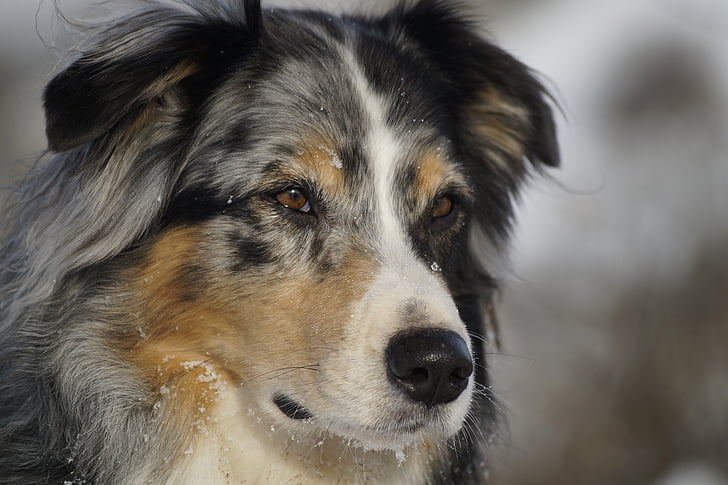
A Blue Merle and Tan Australian Shepherd is one of the stunning types of Australian shepherd with a mix of cool tones and warm accents. Imagine the beautiful marbled blue and gray coat of a Blue Merle Aussie, but now with splashes of tan or copper on their face, legs, or chest. It’s like adding a bit of sunshine to their already eye-catching fur.
These Aussies can also have marbled eyes, where brown and blue flecks mix together, making them look extra mysterious. Unlike most Blue Merle Aussies, the tan markings are pretty subtle and don’t take away from the dominant blue merle pattern. It’s like a secret detail that adds another layer of uniqueness to these already special dogs.
14. Blue Merle Tri-Colored Australian Shepherd
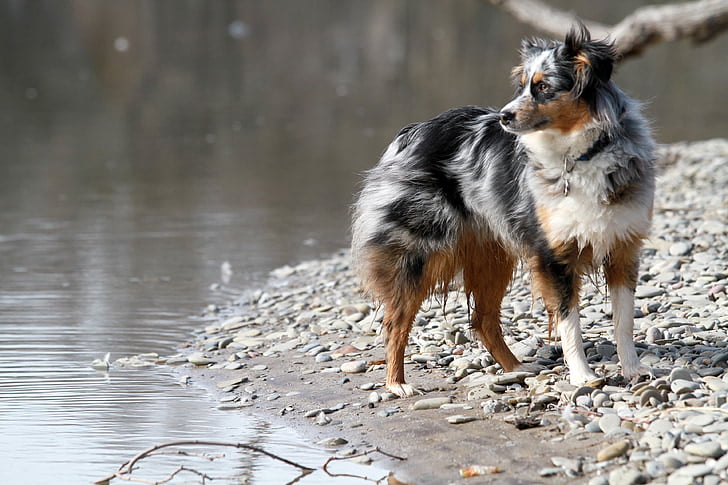
A Blue Merle Tri-Colored Australian Shepherd is like the ultimate Aussie with a triple helping of fur awesomeness! Imagine the cool marbled blue and gray coat of a Blue Merle Aussie, but now with patches of black or brown mixed in for a truly one-of-a-kind look.
This extra color comes from an additional gene that gets layered on top of the blue merle pattern. Just like some Blue Merle Aussies, they might also have white markings on their face, legs, or chest.
And to complete the package, their eyes might be marbled with brown and blue flecks, making them look like they have mismatched socks for eyes! These Tri- colored Aussies are rare, but with their stunning blend of colors, they’re sure to turn heads wherever they go.
15. Yellow Australian Shepherd

Yellow Australian Shepherds, although not recognized by official breed standards, are a sight to behold among different types of Australian Shepherd. Unlike the classic black and white or the marbled blue and gray, Yellow Aussies have a beautiful coat that’s, well, yellow.
It can vary in shade, ranging from a light, almost lemon yellow to a richer, golden hue kind of like a palomino horse.This unique color comes from a recessive gene, meaning both parents need to carry the gene for a yellow puppy to be born.
It’s important to note that yellow doesn’t affect their health – they’re just as healthy as any other Aussie. Some people might mistake them for sable Aussies (which have reddish guard hairs with black tips), but a true yellow Aussie will have fur that’s all one color, without any black tipping.
16. Double Merle Australian Shepherd
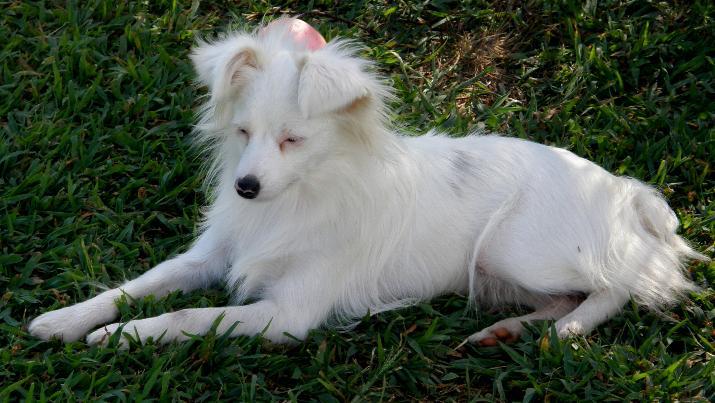
It’s important to understand that Double Merle Australian Shepherds are not recommended due to potential health concerns among the types of Australian Shepherd. Breeding two merle-coated Aussies together significantly increases the chances of the puppies inheriting two copies of the merle gene, which is what creates a Double Merle.
While Double Merle Aussies may have striking appearances, often with excessive white fur and piercing blue eyes, they are at a high risk for hearing and vision impairments, including deafness and blindness. These impairments can range from mild to severe and can significantly impact their quality of life.
Therefore, it’s crucial to be aware of the health risks associated with Double Merle Aussies. If you’re considering adopting or buying an Australian Shepherd, responsible breeders will not breed merle to merle and will prioritize the health and well-being of their dogs.



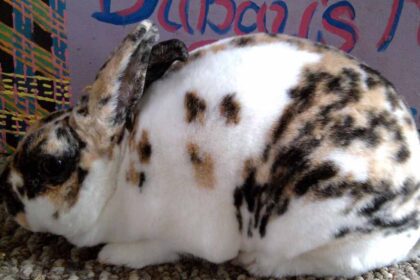
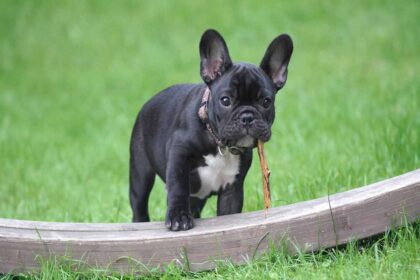
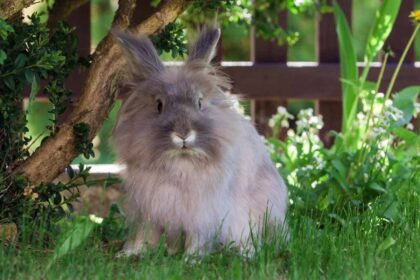
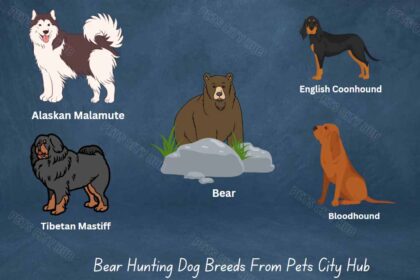
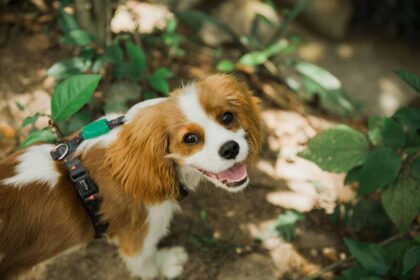
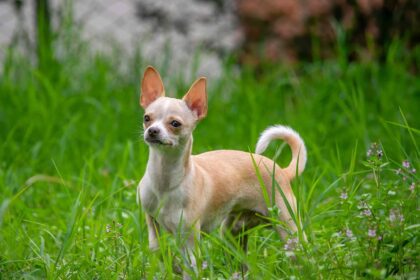

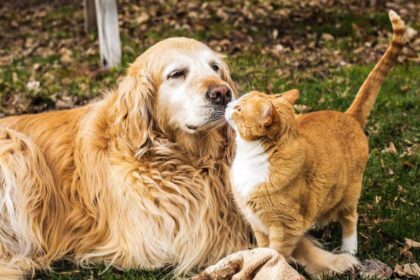
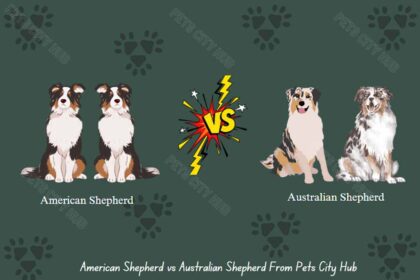

Comments are closed.